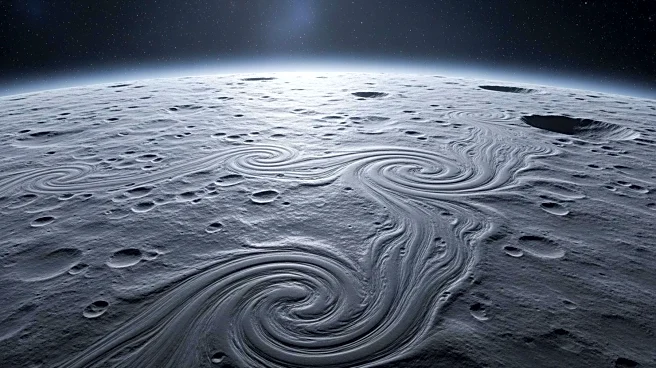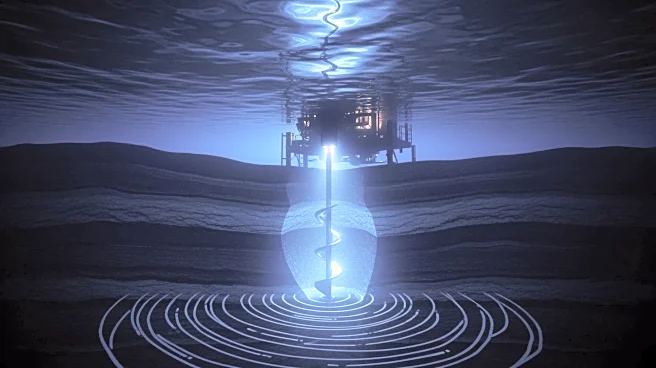What's Happening?
Recent research has revealed that the near-Earth asteroid Ryugu may have once contained flowing liquid water, challenging previous assumptions about the timeline of water activity in the solar system. The study, published in Nature, suggests that Ryugu, a carbonaceous asteroid, held onto water far longer than previously thought. This discovery was made by analyzing rock samples collected by the Japan Aerospace Exploration Agency's Hayabusa2 probe, which indicated the presence of flowing water approximately a billion years after the asteroid's formation. The findings propose that asteroids like Ryugu could have contributed significant amounts of water to Earth, altering the understanding of how Earth's oceans were formed.
Why It's Important?
The discovery of flowing water on Ryugu has significant implications for understanding the origins of Earth's water. If asteroids like Ryugu retained water for extended periods, they could have been a major source of water for Earth, suggesting that the building blocks of Earth were wetter than previously believed. This challenges existing theories about the formation of Earth's oceans and could influence future research on planetary formation and the potential for life on other planets. The study also opens new avenues for exploring the role of asteroids in delivering water to Earth, which could impact scientific approaches to studying the solar system's history.
What's Next?
Further research is needed to understand the mechanisms that allowed Ryugu to retain water for such a long period. Scientists suspect that a collision with another object may have caused the asteroid to heat up, allowing water to flow. Investigating these processes could provide deeper insights into the history of water in the solar system and its role in planetary formation. Additionally, the findings may prompt new missions to study other asteroids, potentially uncovering more about the distribution and history of water in space.
Beyond the Headlines
The discovery raises questions about the long-term fate of water in space and its implications for the search for extraterrestrial life. Understanding how water can persist in asteroids could inform the search for habitable environments beyond Earth. Moreover, the study highlights the importance of asteroid exploration in uncovering the mysteries of the solar system, emphasizing the need for continued investment in space missions and research.








